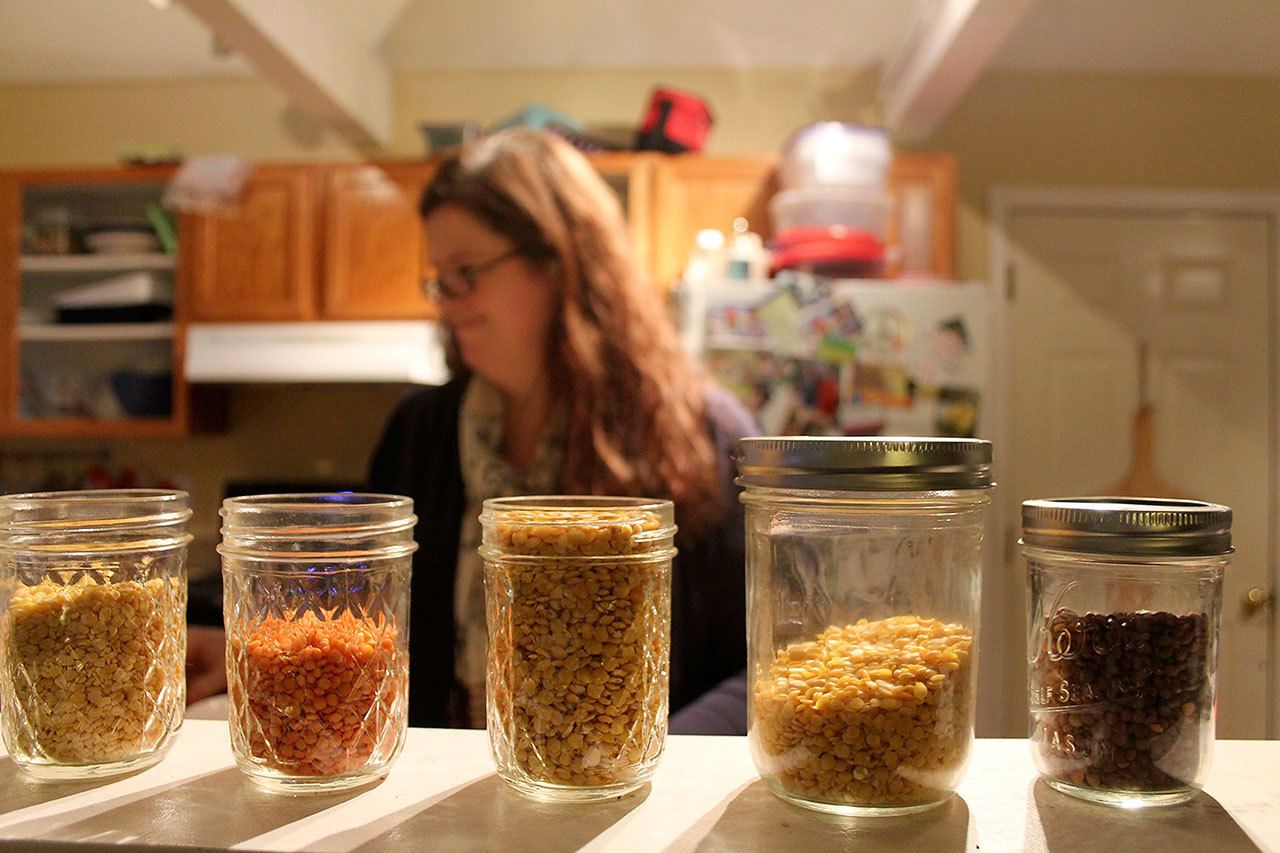To many, eating healthy food entails sacrificing the joy of eating in order to stay fit.
Clinton-based dietician and author Marcy Gaston wants to change that assumption. And she’s aiming to show the average person that healthy choices can also be delicious with a simple, flexible and notoriously healthy staple: lentils.
“I’ve always focused on getting people to eat healthy,” Gaston said. “My goal is to open people’s eyes that healthy foods can also be delicious. And I think lentils are a whole world that people don’t know about, because I certainly didn’t know much about them when I started researching them.”
Gaston, the owner of Whidbey Island Nutrition, has conducted research on lentils and written about her findings in scholarly articles, Food and Nutrition Magazine and in her recent book, “Lentils: Pantry Gems.” She started researching the legume, which is the food group also containing peas and beans, while pursuing her master’s degree in sustainable food systems from Montana State University. She dove headfirst into studying the agricultural, nutritional and culinary sides of lentils. She will return to Montana State University in a contractual teaching role, and has put her business to the side for the time being. She will return in May and continue her business then.
She’s now passing down a bit of her knowledge of lentils to the public at an upcoming Slow Food Whidbey Island event, “The World of Lentils.” Gaston will cover everything lentils, from their nutritional value to the various ways to use the legume in the kitchen. Samples of dishes using various types of lentils will be doled out at the workshop. Those interested in attending can RSVP to Slow Food Whidbey Island membership coordinator Kathy Floyd at kathy46@whidbey.com. The event is at 2 p.m. Saturday, Jan. 28 at Coupeville Recreation Hall. Tickets cost $15.
“We’re very excited at the prospect (of this class) because lentils are such a wholesome addition to a healthy diet,” Floyd said. “The fact that Marcy is a registered dietician adds a whole new dimension to a cooking class because she can speak to the history and nutrition of lentils, as well as the many unique ways they can be used in the kitchen.”
During her research, which she was able to conduct with her professor and classmates due to a U.S. Department of Agriculture grant to promote lentils in America, Gaston focused on the culinary side of things. She aimed to find ways to open people’s eyes to lentils. She had previously only made soups and stews before, so she started toying around with them in the oven.
“I started making zucchini bread and cookies,” Gaston said. “I realized my kids ate the cookies without them knowing they were made with lentils.”
That was the first step in her mission to encourage people to eat healthier, wholesome foods. Lentils are a nutrient-dense food: packed with nine grams of protein per half cup, high in fiber and a good source of iron and potassium. They’re also cheap, don’t spoil and are “easier to prepare than beans.” If she could slip her kids slices of chocolate cake made from red lentils with no complaints, she was doing something right. So she decided to round up her recipes, glance over research on lentils from around the world and compile the information into a book.
Her book, “Lentils: Pantry Gems” is more than a list of recipes. Gaston includes information on the varieties of lentils, and which are more regularly found at the average supermarket. Since lentils are commonly used around the world, from Italy to Morocco to Bangladesh, she dedicates a section to the history and cultural significance of lentils. Since she realizes many readers may not know how to properly cook lentils, she includes a section of the various ways to prepare them.
But for Gaston, her extensive research on lentils doesn’t come down to an obsession with the food staple. It spawns from her mission to persuade the average person to not only eat wholesome and unprocessed foods, but to enjoy eating it in the process. For her, healthy food can be just as tasty.
“What I’m most passionate about is getting people to eat whole foods,” Gaston said. “If I can open people’s eyes to healthy foods that are good, then I’ve done my job.”



